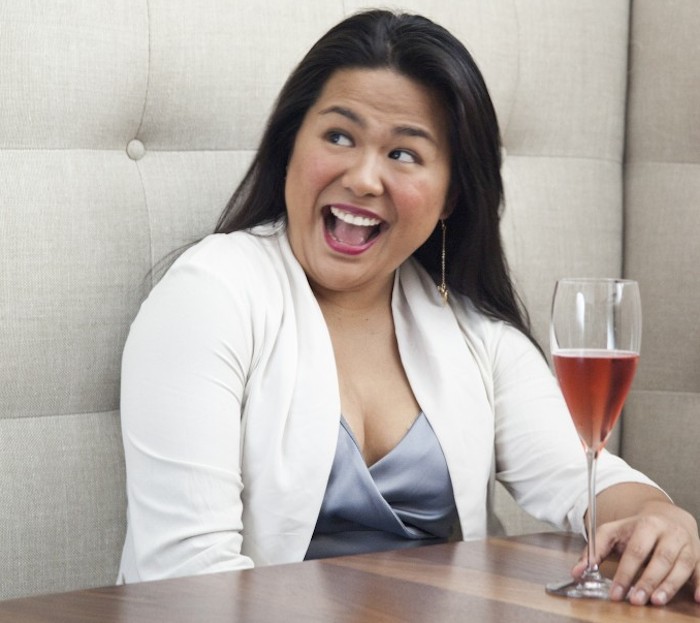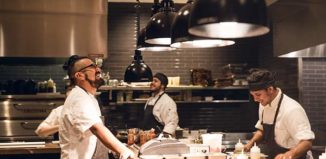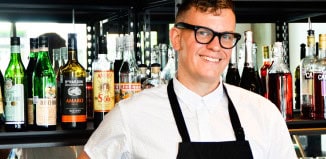Texas wine festival. In most of the world, it’s a term that sounds more like a punch line, akin to “Hooters cuisine” or “Albanian automobile.” But it wasn’t all that long ago that California wine, Oregon wine, or even Chilean wine fell into that same category. In each case the evolution came through passion, dedication, and a whole lot of promotion. If the Texas Hill Country Food & Wine Festival is any indication, evolution and intention bring change.
This year’s festival attracted many leading professionals from all over the world, and I noticed another ascendency–an unexpected number of women featured. And just as California wines have often eclipsed the Old World classics, some people are asking if women are coming to dominate the world of tasters and sommeliers and if inherent female “advantages” make this both natural and inevitable. This brings up the persistent question: Are women actually better sommeliers and tasters?
Proponents say yes because women physically have a more advantageous palate and because they usually have a more discreet vocabulary, either by predisposition or socialization. Like the Inuit people and their exhaustive list of words for snow, perhaps having the ability to make more discreet differences in perception may have to do with having the resources to detect and describe those differences.
There is a physical difference. Women do tend to have more taste buds than men, but this is also a generalization, and exceptions do exist. There is also variability in the number of taste buds one has on his/her tongue, from 11 to 1,000 per square inch, a great difference from one person to another. And despite how important the tongue is in tasting, a much more complex set of factors, mostly smell, determines the perception of flavor. Somewhere between 80 and 90 percent of what we taste, especially in wine, actually comes from what we smell.
Do women taste more precisely because they can describe those differences more accurately and also communicate them by association to others? Can you understand more about a wine if it’s described to you as the red pill in The Matrix instead of the blue? Is there a different connection to a wine if someone says it is the Diana Ross of Malbecs instead of the Joan Jett? I asked two women who were featured during the festival to share some of their thoughts.
June Rodil, Sommelier for Congress
MC: I find the most interesting connections and discovery around wine when you can use metaphor to get people engaged. What are some of the ways you love to talk about wine?
JR: Wines are often women for me, and you need to find a basis for comparison. I use metaphor all the time. For example, when I explain how a wine matures over time, I might say, sometimes you get a lucky one where the hottest girl in high school is still the best-looking woman you know at 40, but more often you can take any supermodel and then look at her middle-school yearbook picture–maybe it’s not the hottest. Some things need time to develop.
MC: Talk to me about regions. You have often told me that when you build a wine list, you work on creating points of familiarity around wines and regions, not brands. How do you teach a customer about that in a similar way?
JR: Right. Talking about Piedmont, it’s like Chanel boots that you wear over the knee when it’s really cold, that’s Piedmont. Using analogy demystifies wine. Once a customer has familiarity with a wine or a flavor profile, it’s like that is the primary color and that is a safe place to start, and then we can move on to secondary and tertiary flavors, profiles, regions. But first we have to share a common understanding so there is transference.
MC: The idea of a desert island wine is a common reference for transferring the idea of something you can’t live without. What are your desert island wines?
JR: Bubbles, especially grower champagne, anything by importer Terry Thiess.
MC: You and me both. I could take a bath in Pierre Peters Non Vintage Champagne.
MC: There has been a lot said about it, but do you have an opinion on whether women are inherently better tasters?
JR: Tough one mamma. Our backgrounds and our personalities draw us to pay attention to certain things, like I am from the Philippines, so I really pay attention and can be very specific in describing tropical fruits. I taste fruits most other people don’t because I know a lot about them and I can name them. This has to do with upbringing but also personality and those things do relate to gender.
Marquise Caroline Roussy de Sales, Owner: Historic Chateau de la Chaize, Brouilly, France
MC: What is your first memory of drinking wine? What smells do you associate with that experience?
CRS: My first memory is as a child, hardly a teenager. Our father always had us taste a sip of all the marvelous wines he drank and offered his guests at dinners at home. Most of the wines were wonderful older Burgundy or Bordeaux wines and I remember more the sensation of softness on the palate.
MC: What do you feel is the greatest challenge the French families have when talking to an American audience?
CRS: The challenge is to convey what passion is behind the whole business, which is rather tough because Americans are more used to asking for a type of grape instead of going for the place. But the specific assets we have are quite outstanding; none of the recent countries have as much tradition and history. This means the know-how has been passed on for many generations. The real challenge is also to educate the new generations of customers by sharing our knowledge without any prejudice and help them discover a wine they might never have heard of, or a new approach to a wine region they already knew of. Chateau de la Chaize is a red wine that goes with every food–like champagne–people just need to try it.
MC: What’s your impression of Texas?
CRS: Having never set foot in Texas before this trip, this was a total discovery and what an experience! I simply loved it!
MC: What are your biggest takeaways from your experience here in Austin?
CRS: Austin is very special, fun and lively. The people are extremely friendly and courteous, and the city seems like a dream to live in.
MC: We have spent time talking about relating wine to things people can really relate to. If Chateau de la Chaize were a favorite song of yours, which one would it be?
CRS: Difficult to choose. Maybe a famous opera aria like that of Don Giovanni: “Laci darem la mano.”
MC: Yes, but after spending time with you, I know you also love soul and R & B. What are your favorites?
CRS: Otis Redding, “Sitting on the Dock of the Bay.”





































